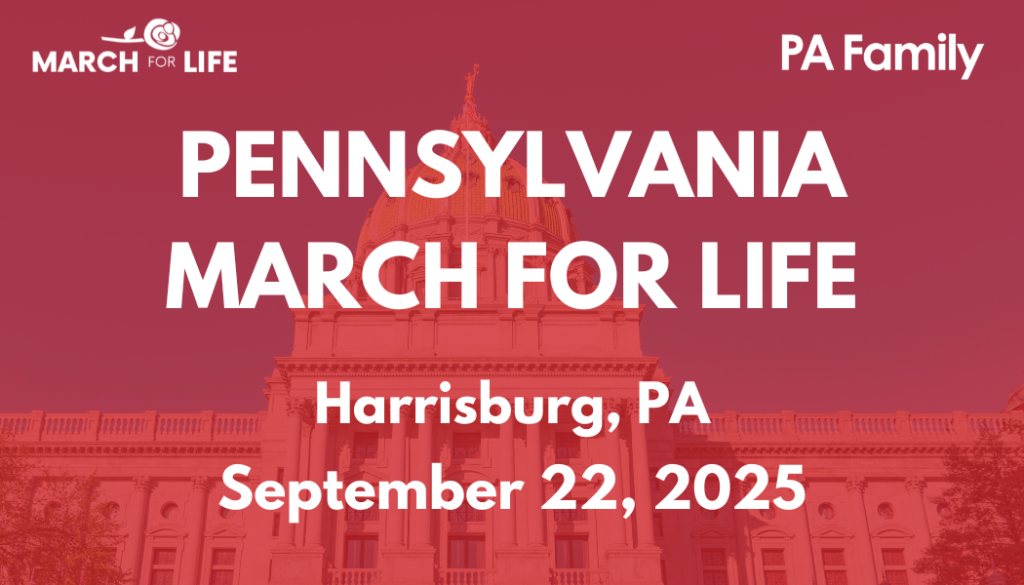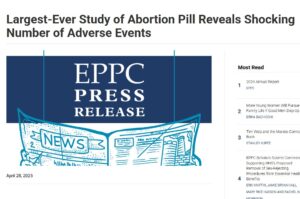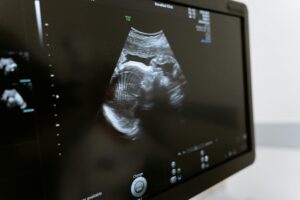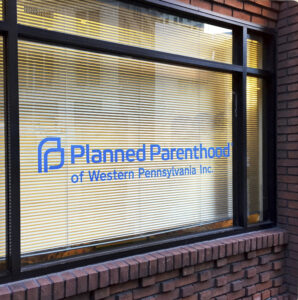MOON TOWNSHIP, PA — The quiet closure of a Planned Parenthood location just outside of Pittsburgh this spring may seem like a local development, but it represents something far more consequential: the abortion industry’s accelerating shift away from brick and mortar sites, and toward mail-order chemical abortions, despite growing evidence of serious health risks for women.
Abortion Facilities Closed
On March 31, 2025, Planned Parenthood of Western Pennsylvania officially shut down its location in Moon Township, marking the 18th Planned Parenthood site to close in Pennsylvania since 2010, including 16 feeder facilities and two abortion-performing locations.
In announcing the closure on social media, Planned Parenthood offered so-called “telehealth” and abortion pill delivery as alternatives, showcasing its evolving business model. What’s being quietly phased out is in-person access and patient evaluation. What’s being promoted is a system where women can end the lives of their unborn child without ever being physically examined by a doctor.
Mifepristone: Under Federal Scrutiny
At the center of this transformation is mifepristone, the first drug in a two-part chemical abortion regimen, and a drug now under renewed federal scrutiny.
In May of this year, U.S. Health and Human Services Secretary Robert F. Kennedy Jr. ordered a fresh safety review of mifepristone. He asked FDA Commissioner Dr. Marty Makary to examine the most current data, following mounting concerns about serious adverse effects that contradict the FDA’s longstanding claims of safety. During a hearing before the Senate Health, Education, Labor and Pensions Committee, Kennedy said the latest research was “alarming,” adding, “…clearly it indicates at the very least the [FDA] label should be changed.”
This review was reportedly prompted by a study published by the Ethics and Public Policy Center (EPPC), which analyzed insurance claims from over 865,000 chemical abortions between 2017 and 2023. The study found that more than 10% of women suffered serious or life-threatening complications within 45 days of taking mifepristone, far exceeding the “less than 0.5%” complication rate cited by the FDA based on older clinical trials.
These complications include hemorrhage, sepsis, infection, and, in some cases, hospitalization. The EPPC study presents a sobering picture of a drug that is now used in more than 6 out of 10 abortions in the U.S. and increasingly delivered without any in-person medical oversight.
The FDA’s Eroded Safety Standards
The concerns raised in the EPPC report are magnified by how drastically the FDA has weakened safety standards over the past two decades.
When mifepristone was first approved in 2000, strict guidelines limited its use to seven weeks of gestation, required in-person doctor visits, and mandated reporting of all serious complications.
But beginning in 2016—at the request of the abortion pill manufacturer—the FDA began stripping away these guardrails:
- Gestational limits were increased from 7 weeks to 10 weeks.
- In-person visit requirements were slashed from three to one, and then to none in 2021!
- Non-physicians were allowed to prescribe the drug.
- Reporting requirements for non-fatal complications were eliminated.
By 2021, the FDA had removed the final safeguard: allowing the pills to be dispensed by mail with no in-person exam, ultrasound, or medical supervision required.
That means a woman can now receive these drugs without being checked for conditions like ectopic pregnancy or without knowing the actual gestational age, both of which can be deadly (for the woman) if left undiagnosed during a chemical abortion (which is always deadly for the unborn child).
From Clinics to Clicks: A Dangerous Shift
The March closure of Planned Parenthood’s Moon Township location may have almost slipped under the radar. But it represents a troubling trend: the steady dismantling of in-person abortion infrastructure, replaced by online consultations and mail-order abortion pills.
This shift allows abortion providers to reduce costs, limit liability, and eliminate the need for licensed medical professionals, while putting all the risk on the shoulders of women, many of whom are left to face dangerous complications alone.
In Pennsylvania and nationwide, this new mail-order abortion model is expanding, even as evidence and serious concerns mount about its safety, transparency, and regulation.
Why it Matters for Pennsylvanians
The combination of eroded safety standards, rising complications, and brick and mortar location closures should be a wake-up call for policymakers and the public.
Chemical abortion is not the simple, safe solution it is marketed to be. Behind the polished language of “telehealth access” is a deeply troubling reality: women are being left alone to face severe, sometimes life-threatening complications.
The Biden administration’s FDA may have ignored these warnings, but Robert F. Kennedy Jr.’s call for a safety review offers a chance to re-evaluate the real-world dangers of mifepristone, provide women with the truth about the risks, and to reintroduce important safeguards that put women’s health first.
In the meantime, pro-life advocates in Pennsylvania must remain vigilant, informed, and ready to speak the truth about a growing crisis that is being packaged and shipped to women’s mailboxes every day.

Join us at the 5th annual Pennsylvania March for Life on Monday, September 22! Help us be a voice for the voiceless.
Visit www.pafamily.org/march for more info.






Stop allowing the dangerous drugs that kills unborn babies. It’s dangerous for the mother and they can end up dead or in the hospital. Also can cause women with certain blood types never to be able to have children!